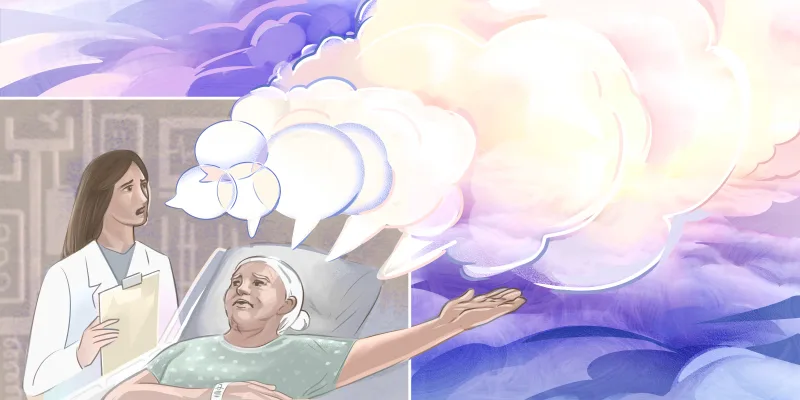
From October 25 to October 29, 2019, more than 10,000 pediatricians from all over the world gathered in the city of New Orleans, Louisiana, to attend the American Academy of Pediatrics (AAP) National Conference and Exhibition. Being the world’s largest pediatric medical education event, the AAP National Conference draws pediatricians, like me, to network with mentors and colleagues, learn about the latest clinical guidelines and policies, and be inspired to renew our staunch commitment of serving pediatric patients. Every year the AAP gathers an astounding lineup of speakers, assembling mentors and colleagues best equipped to impart the latest pediatric updates, address the current social and political landscape impacting our communities, and foster an environment of high-yield learning for every participant. This year, the AAP featured critical topics like physician wellness, opioid use, housing security, immigrant health, and advocacy. I eagerly anticipated catching up with residency attendings, reconnecting with friends, participating in educational sessions and engaging in thought-provoking panels on the hottest trends in pediatrics. Above all, I always leave the conference feeling invigorated and motivated to do a better job, armed with new tools and resources for the demanding, yet rewarding work ahead. The encouragement I repeatedly receive from my esteemed colleagues, daily experiencing and grappling with the same challenges and issues, remains invaluable.
As part of the Opening Plenary session, attendees had the opportunity to hear a variety of nationally acclaimed speakers, from the Associate Justice of the Supreme Court of the United States, Sonia Sotomayor, to the AAP President, Dr. Kyle Yasuda. These were rewarding and memorable experiences, but the simple, yet poignant, message from Mrs. LaToshia Rouse regarding resilience during chronic illness was one of the most impactful presentations of the entire conference. Mrs. Rouse is the proud mother of 6-year-old triplets, born at 26 weeks, and a 9-year-old son with autism. Working closely with clinicians, health systems, and support organizations, Mrs. Rouse shared her experience as an advocate for linking and infusing the parent’s voice into the clinical team. Mrs. Rouse’s inspiring speech highlighted the power of connection between caregiver and family, beautifully expressing how the relationship developed with their pediatrician has been so impactful.
Mrs. Rouse’s authentic account of the first time she brought her children to see the pediatrician captivated the audience. I was particularly moved as she shared when the doctor paused that first appointment to ask her a simple and sincere question: “How are you doing?” The physician followed with heartfelt listening and genuine concern. Mrs. Rouse experienced compassion from a pediatrician who not only cares about her children, but clearly understands the importance of providing support to the parents and caregivers.
While clinical encounters have become increasingly “busy,” the time we spend connecting with our patients, and their support network of parents and caregivers, has diminished. As physicians, we continue to face increasing demands to complete more tasks while being allowed less time to accomplish the true work of caring for the patient. Pausing to ask caregivers a question like “How are you doing?”, meaning it, and having the time to listen thoughtfully or provide compassionate, palpable support when practicable, may seem less significant (and perhaps impossible) when compared to treating the patient directly. However, it is this type of “supportive care” that can often have the most powerful and lasting impact on the patients and families we serve.
As pediatricians, we seek to empower families with the information they need to be able to care for their children beyond the walls of our facilities. We eagerly provide evidence-based advice as we impart our experience and knowledge to share and recommend resources that will bolster the effectiveness of each clinical encounter. We cannot forget, or underestimate, that the most memorable medical appointments are dependent upon how cared for and cared about we make our patients and their caregivers feel. A patient who comes to you for help is not an isolated, solitary being. They have some type of support network and that patient will always fare better when their support network is also heard, valued, encouraged, and treated with respect and compassion. A mother, like Mrs. Rouse, who just arrived at your office for the first time with three premature infants and a toddler, ought to be listened to and needs to feel your compassion and concern for her as well as her four precious children.
As pediatricians, we have the privilege and challenge of caring for the whole patient because children need to depend on others for help and support. A healthy mother, both medically and emotionally, as Mrs. Rouse so clearly exemplifies, provides the best care for her children. Helping parents and caregivers helps patients.
Mrs. Rouse shared that their family’s pediatrician was the first person to ask how she was doing, although she had spent months in the NICU with her three newborns. Mrs. Rouse responded by telling the doctor how she needed to be strong for her family and how she didn’t have the time or opportunity to care for herself. It was the pediatrician who reminded her that she in fact has emotions, that she needs to take care of herself in order to have the strength to continue supporting her family, and most importantly that she matters, no matter what. The pediatrician gave Mrs. Rouse the permission to be “human,” and this simple gesture of care and concern was the beginning of an ongoing, trusting relationship between a mother and her children’s physician.
Mrs. Rouse also informed us that she is a contributing voice for an initiative sponsored by the American Board of Pediatrics (ABP) called “The RoadMap Project”. The Road Map Project is the ABP’s national effort committed to supporting pediatric patients living with chronic conditions, their families, and the medical teams who care for them. The Road Map Project has developed resources like example conversations with patients and families to promote positive interactions and a change package with tools, resources, and examples that can help clinicians increase the resilience and emotional health for children and families with chronic conditions.
In today’s fast-paced world, it is easy to forget the reasons we felt called to choose a career in pediatrics. Overbooked schedules, lack of parental trust, hesitancy, and outright refusal to be immunized, unpredictable emergencies, challenges with staff and colleagues, exhaustion, and physician burnout are all circumstances that can influence the way we view and care for our patients and their families. We must never forget, at the center of it all, there is a child who needs you, with a parent or caregiver seeking advice, and that you, their pediatrician, can make a lasting and a transformative impact.
Dr. Johanna Vidal-Phelan received her undergraduate degree from Wellesley College and a Healthcare MBA from George Washington School of Business in Washington, DC. She completed her doctorate at UMDNJ – Robert Wood Johnson Medical School. Dr. Vidal-Phelan is also a fellow of the American Academy of Pediatrics. She also has specific expertise in pediatric medicine, quality improvement and CHIP. Dr. Vidal-Phelan is Vice President Medical Director of the Care Centered Collaborative at the Pennsylvania Medical Society.







